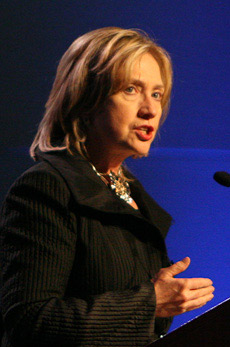October 26, 2011 San Francisco
Democratic Senator Jeff Merkley of Oregon was interviewed by Greg Dalton at Climate One at the Commonwealth Club in San Francisco. This video features excerpts related to energy and climate change.
Partial Text Transcript:
2:44 CO2s Emissions Increasing
“So not only do we have way too much carbon dioxide in the air but the pace is growing quickly. This has all kinds of threats to the planet. So we should do everything possible, in conservation, in solar energy, in potential wave energy, in wind energy, to replace the carbon based energy economy with a non carbon based.”
4:29 ‘Citizens United’ – The Power and Finance Behind Policy
“Let me tell you that when you look to policy, you can’t just look at policy itself, you have to look at the power behind different perspectives in policy, and there’s a huge powerful interest in the oil and coal world that the last thing that they want is for us to move to non carbon sources. And so their presence is intense. They fund lots of think tanks to come up with lots of arguments not to proceed to non carbon based. Under Citizens United, they can put enormous amounts anonymously into campaigns across America. And let me give you a sense of this. If Exxon spent 3% in 2008 of its net profits it would have exceeded all the dollars spent in the presidential campaign by all the various parties involved. One company, three percent of net profits. And under Citizens United, it can be done secretively, anonymously. And so it’s a very powerful interest. It’s the reason we need to have discussions across this country about where we’re headed and why we need to change the course were on, because ultimately it’s an informed citizenry that is going to create the push back and allow us change course.”
14:15 International climate Negotiations in South Africa later this year
Q:”Given the relative failure of the United States to pass any kind of climate cap and trade or anything in our own country, what do you think we should bring forward to the table in South Africa in the negotiations. What should our approach be?”
A: “The hope had been that substantial progress by America would lead to a framework that we could advocate for internationally. I think we’re somewhat at sea in terms of what international role we can take.”
“I do want to point out that the administration proceeded to by administrative rule do a terrific piece of work in terms of the gas efficiency of vehicles, by requiring for the years I think 2017 to 2030 a 5% per year improvement. That has largely gone unnoticed and un-discussed. In my think tank case that I did on how to end our dependence on foreign oil over a twenty year period I have a 6% per year in there, so 5% per year, that’s pretty solid, and managed to bring a lot of parties together. That doesn’t necessarily set the stage for an international set of responsibilities.”
“But what we’re talking about in terms of international conversation is about the global commons. So again, here we have this air, this very thin layer that wraps around this beautiful blue green planet. And changing the chemistry depends upon what every country around the world puts into it. And so how are we going to work together to address a set of rules that will protect this commons, this atmosphere, that we all share. And that is so important, because there is no way, no matter how good of a legislation we do here in the U.S. by ourselves, that we are going to change the general global dynamic.”
“But the hope is, by being engaged at the U.S., we gain credibility and have more ability to work with countries around the world and not have everyone saying, ‘you first, you first’. Developing countries saying ‘you first’ industrialized world because you’ve already benefited from burning a lot of carbon, now we want to burn a lot of carbon. And for us to say, ‘you first’ you poor countries because you’re doing more coal we’re already doing a lot of hydro and renewables so you get rid of your coal first and then let’s talk. We’ve got to get out of the ‘you first’ and get into the us together have to take care of this problem.”
Report by James George





























































